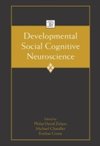
-
 Anglický jazyk
Anglický jazyk
Identity Consistency The Interplay of Group Participation and Collective Orientation on Wellbeing
Autor: Lalkhawngaihi Grace
The question of self and identity has its roots in historical philosophy. The first related mention of the term identity could be traced in Descartes' (1637/2000) popular statement, "I think, therefore, I am" (as cited in Hammack, 2015, p.13), which implied... Viac o knihe
Produkt je dočasne nedostupný
49.86 €
bežná cena: 55.40 €
O knihe
The question of self and identity has its roots in historical philosophy. The first related mention of the term identity could be traced in Descartes' (1637/2000) popular statement, "I think, therefore, I am" (as cited in Hammack, 2015, p.13), which implied a higher process of thinking about self. Early psychologists regarded meaning making of self to perceiving unity in events; as they emphasized greatly on the role of remembering, seeking for meaning and relations, similarity or variations in explaining identity as a phenomenon (Hammack, 2015). In the review of how early theorists conceptualized important identity theories from the late nineteenth and early twentieth century, James (1980, as cited in Hammock, 2015) who viewed personal identity as, "consciousness of personal sameness" (p. 13), and Meads (1934, as cited in Hammock, 2015), who coined the term ''conversation of gestures'' (p. 14), were found to focus largely on the personal and social construction of self respectively. Self and identity are often used as equivalent terms (Baumeister, 1987). However, their concepts may differ (McAdams, 2013). Self and identity can be differentiated based on the focus of an "interior world of perception" i.e. self, or an "exterior world of social meaning'', i.e. identity (Hammack, 2015, p.11). Self can be viewed as a personal psychological process; whereas identity may be viewed as a social lens, through which the psycho-social world can be understood at both individual and social level (Owens, 2006). Identity theorists are then primarily interested with the exterior or the personal/social dynamics according to Bamberg (2011). Therefore, understanding of identity has been approached at both individual and social level which incorporates the influence of both James's (1890, as cited in Hammack, 2015) personal coherence in identity formation, and Meads' (1934, as cited in Hammack, 2015) social construction of self. The most significant contribution among the contemporary theories of developmental, personality, social and cultural psychology was the landmark theory of identity crisis, given by the "identity's architect" Erik Erikson (Friedman, 1999, as cited in Hammack, 2015), followed by Marcia's (1966) identity status theory. As a developmental psychologist, Erikson (1959, as cited in Hammack, 2015) refers to identity as, "a process and an outcome of human development across the lifespan,
- Vydavateľstvo: psychologyinhindi
- Rok vydania: 2022
- Formát: Paperback
- Rozmer: 229 x 152 mm
- Jazyk: Anglický jazyk
- ISBN: 9782344137581












